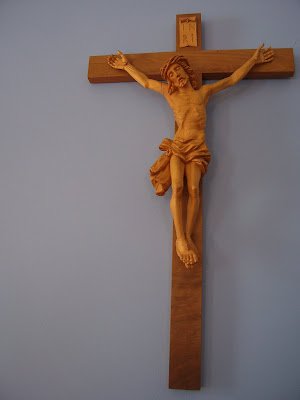Catholic Worker (a paper for Catholic Social Thought)
(this is drawn from http://www.catholicworker.org )
The Catholic Worker is a liberal Catholic movement started by Dorothy day and Peter Maurin in 1933. Committed to being a prophetic voice in a world turned away from human rights, it calls out injustice in economics, labor, politics, morals and the arms race. And it advocates personalism, a decentralized society, and a “green revolution”. It practices nonviolence, works of mercy, manual labor, and voluntary poverty.
It’s prophetic voice is aimed against the focus on wealth, production, “acquisition… material interests, and… respectability and mediocrity” and turned towards a radical acknowledgement of the human person as central to all human activities. Specifically a few areas they speak out against are unjust interest rates, war-related technology, alienation of workers from their products (inability to purchase their own products and complex production that makes a person only part of the process of production), ineffective and nonresponsive bureaucracy, over-control and regulation of life by government, classism, racism, sexism, conflict caused by the striving for wealth of capitalism, “spiritual destitution”, the arms race especially as an injury to the poor by taking resources that should be used for their benefit.
It’s advocacy is focused on the common good of society (meaning individuals and the whole) “in the service of God”. It focuses on the “freedom and dignity of each person”, taking personal action to address problems instead of playing the blame game, it encourages grass roots projects that are maintainable by small groups (thus distributing production, and remarrying production and the producers), reordering society so that money no longer becomes an end but returns to a means of exchange, relearning the meanings of labor and our relation to the earth, self-sufficiency, “associations of mutality”, and positive cooperation recognizing everyone’s dignity in resolution of conflict.
Its practices are focused on reflecting Christ’s, and “personal and social transformation”. They stand for nonviolence and life and against oppression, for self sacrifice, and prayer, fasting “and noncooperation with evil” (through civil disobedience, protest). Their works of mercy derive from the gospel, the constant teaching of the Church, and the radical concepts of the greatest saints, Basil, Augustine, Thomas Aquinas and others. The center of which is that we are stewards of our gifts, and they are meant to satisfy the needs of the world, if we do not use them for such, we steal from those in need. Their idea of manual labor attempts to redignify it, and in a sense proclaim an incarnate theology, where the whole person is most dignified when working, and addressed, the body, mind and soul. And this work coupled with prayer is a gift to give to God. The voluntary poverty increases “knowledge [of] and belief in love.” A radical giving of self to the full disposal of God’s grace, and placing their own boats on the tides of the poor.
Despite this seeming unity of ideals, Catholic worker is very diverse. It is composed of over 185 different communities located in rural and urban areas. Each community is independent of the others, and no licensing is required to be called a “Catholic Worker”. Communities vary in purpose from hospitality to “resistance” (to injustices). And each is subject to the needs and dispositions of whatever community forms it, or maintains it.

0 Comments:
Post a Comment
<< Home